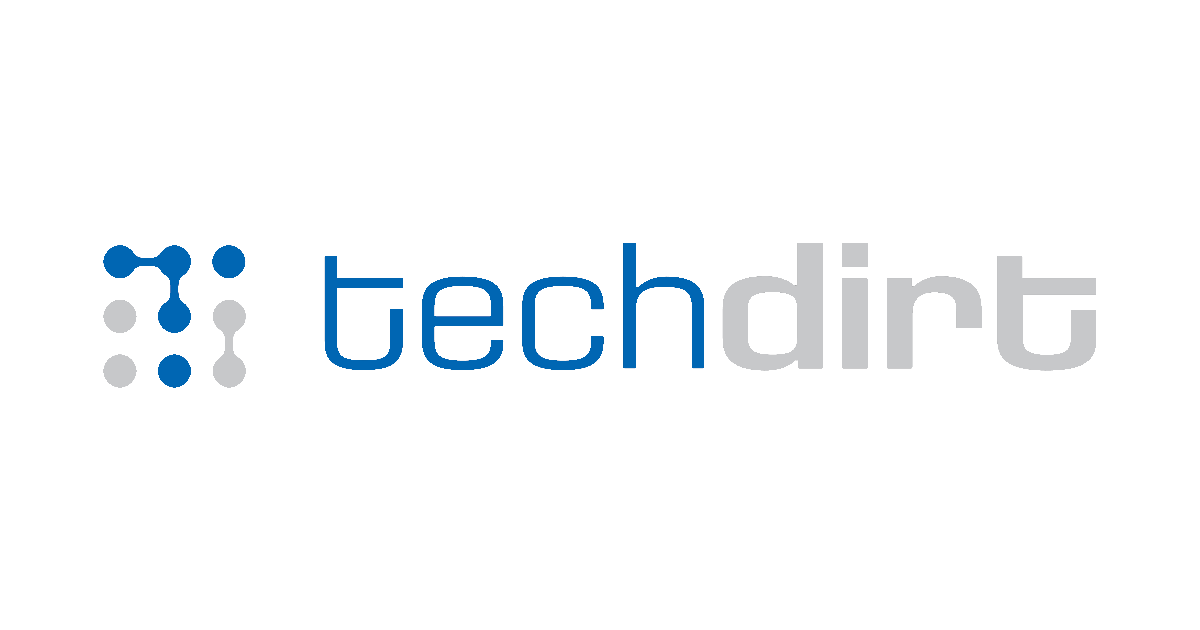from the putting-out-wildfires-with-a-tin-cup dept
Under the dull roar of our great TikTok moral panic I’ve been trying to make the semi-nuanced point that while TikTok does present some legitimate privacy issues, a ban won’t fix the actual problem. Largely because U.S. policymakers and businesses don’t want to fix the actual problem. They don’t even want to acknowledge what the actual problem is.
Namely that we’ve created a vast, largely unregulated data broker market that traffics in vast realms of private user data. That data at scale is hugely profitable for everybody in the chain. But it’s also easily exploitable by Chinese intelligence agencies keen on building detailed profiles of Americans. And it’s a great way for the U.S. government to obtain sensitive U.S. resident data without those pesky warrants.
So again, banning TikTok isn’t actually doing what U.S. politicians (especially on the GOP side) claim.
Case in point: a new Gizmodo investigation found that over 28,000 different apps make use of TikTok’s software development kits. All of these apps send TikTok various data to handle things like slinging ads, logging in to services, and sharing videos from the app. It’s another example of how “ban TikTok and we’ve fixed the problem” is simplistic and stupid:
“A simple ban on the TikTok app itself is not going to stop data flowing to TikTok,” said Daniel Kahn Gillmor, a senior staff technologist at the American Civil Liberties Union. “TikTok has software in other places, not to mention TikTok trackers spread across other parts of the web. I don’t have a TikTok account, but there are still plenty of ways the company can get data about me.”
That’s of course just the SDK. Were Chinese intelligence really keen on obtaining vast troves of U.S. resident location, browsing, and even mental health data… it’s rather trivial to buy it on the cheap from the global data broker market whose operations are convoluted specifically to help them avoid regulatory accountability. With or without TikTok’s help.
It’s kind of weird to me how despite the rampant coverage of the TikTok fracas, Gizmodo is one of very few outlets consistently pointing out to readers how banning TikTok doesn’t really address our propaganda or privacy problems:
“I’m not at all saying TikTok is innocent, but focusing specifically on one app from one country is not going to solve whatever problem you think you’re solving. It truly misses the point,” Kahn Gillmor said. “Do we really think that Facebook or Google are not capable of being influenced by the Chinese government? They know a market when they see one. I think the pressure that’s building is basically a race to be seen as tough on China.”
Again, if U.S. policymakers were actually serious about national security and privacy, we’d take widespread U.S. corruption more seriously. Corruption is eminently exploitable by foreign intelligence (see both Russia and China). It also prevented us from passing even a baseline privacy law for the internet era despite two straight decades of very clear warnings from experts and activists.
TikTok is held up as some exceptional, unique threat to U.S. consumer privacy and national security, and it’s just not. The entire ecosystem is rotten and exploitable by bad actors of every stripe, and it’s rotten because we’ve spent the better part of the last generation prioritizing making money over market health, consumer welfare, or national security:
“Lots of people have had a good look at the TikTok app, and they haven’t found a smoking gun, or anything that looks different from what happens with Facebook, Twitter, and other social networks,” Stockley said. “If the federal government had something within the app that they could expose, I would expect they’d do it.”
Actually fixing this problem would result in U.S. companies making less money from over-collecting consumer data then failing repeatedly to secure it before selling access to it to any nitwit with a few nickels. Actually fixing this problem would require reining in the U.S. government’s widespread domestic surveillance machine, and its routine abuse of this barely regulated market to avoid getting warrants.
A TikTok ban lets a parade of DC blowhards pretend they’re doing something about the problem and being tough on China, even if they’re not actually doing either. For the GOP, it also serves as chum for a xenophobic base, and it lets them pretend they’re fixing a problem (a barely regulated data broker market) their own shitty policies actively created.
Filed Under: china, corruption, domestic surveillance, national security, privacy, security, social media, surveillance, tiktok ban
Companies: tiktok
Source link











Leave a Reply